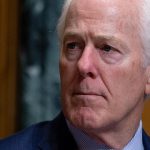The COVID-19 global pandemic poses a severe threat to health, to the economy and to our system of funding health care in the United States. Employers can play an important role in addressing the threat of this coronavirus, but we also need effective government action to save lives and to preserve the viability of businesses across the country.
Employers provide health coverage for about 160 million Americans, and employer-sponsored health insurance reimburses health care providers for care that costs over $1.2 trillion dollars a year. Almost two-thirds of Americans who have employer-sponsored health insurance are in “self-insured” plans. Any unexpected costs are paid by the employer in these plans, not by a health insurer.
Much of the focus of public policy, including the recently-passed Families First Coronavirus Response Act and the Coronavirus Aid, Relief and Economic Security (CARES) Act, has been to eliminate out-of-pocket costs for patients. This is appropriate. Many families will have smaller paychecks or no pay altogether. Paying deductibles and coinsurance for care, whether for COVID-19 or anything else, could send families into insolvency.
The cost of providing medical care for COVID-19 will be enormous. Medicare costs will rise especially fast, as the likelihood of requiring intensive care is much higher for the elderly. But costs of employer-sponsored health insurance could also increase dramatically — perhaps by 10 percent or more, depending on the amount of viral spread, how many people need intensive care and how much capacity the hospital system is able to create.
This extra cost will be one more stumbling block for companies that will have to get back to business after the pandemic has passed. This new unanticipated cost could lead companies that had continued to offer benefits to furloughed workers to discontinue benefits to them, throwing people off insurance just when they need it most. Even worse, this cost could threaten the viability of some businesses, which will already be shaken by the coming economic slowdown from this pandemic.
The government can make a real difference. As Congress considers further COVID-19 relief bills, here are some initiatives that can help businesses maintain coverage, decrease employee and family financial insecurity, and provide access to the essential care for those afflicted with the virus:
Federalize the cost of testing and treating COVID-19. This would remove the uncertainty of this cost from patients and from employer sponsors and could help avoid a larger share of workers losing health care coverage altogether. Coverage could be arranged through Medicare, which would lower unit cost, and could be designed with no cost-sharing. This would relieve hospitals of the risk of bad debt; with intensive care unit stays often exceeding $100,000, many hospital bills would likely otherwise be unpaid.
Offer tax credits or direct aid to employers that continue to offer ACA-compliant health insurance to their employees. We should prioritize the maintenance of full coverage for the remaining workforce. Tax credits were used to maintain retiree health care during the transition to the Affordable Care Act, and they could be used in this instance to allow as many Americans as possible to maintain their current health plans through this crisis. Alternatively, Congress should consider the increased cost of insurance, as well as wages, when determining what cash relief to provide to employers.
Increase the tax-deductibility of out-of-pocket health care expenses through an advanceable tax credit. The federal government could use this approach to help workers pay for deductibles and coinsurance to decrease barriers to care.
Expand subsidies for exchange health plans, and offer a special open enrollment period now. Many employees will be eligible to purchase individual health plans through the Affordable Care Act marketplaces because they lose their jobs — although high premiums have been a barrier for those of modest but not low income. Eleven states have already offered a new open enrollment period; as this pandemic is now in all states, the federal government should do the same.
Return permanently to a full federal subsidy for Medicaid expansion and urge all states to expand Medicaid to 133 percent of the federal poverty limit now. States will see dramatic reductions in their sales tax and other revenues and be ill-equipped to expand Medicaid eligibility even as the need grows due to the economic recession. Medicaid is the most cost-effective way to ensure the poor and the near-poor, and it is a good way for the federal government to push fiscal stimulus dollars to the states. Increased Medicaid eligibility can help maintain workforce health during this period when fewer will have access to employer-sponsored health insurance.
The U.S. faces both a public health crisis and an economic crisis. We should not overlook the threat that large personal and company medical cost liabilities will cause and the potential for prolonged economic distress even after the pandemic recedes. Prompt government action can ensure employees retain access and financing of health care now and position us to have more viable businesses and a healthier and more financially secure workforce as we come out of the COVID pandemic.
Jeff Levin-Scherz, M.D., MBA. is an assistant professor at the Harvard TH Chan School of Public Health and a managing director and the co-leader of the North American Health Management Practice at Willis Towers Watson.
Source: The Hill







